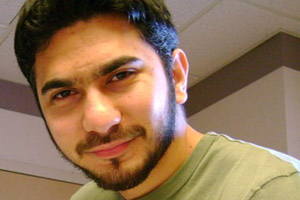
John F. Kennedy International Airport in New York City. | Flickr/<a href="http://www.flickr.com/photos/wallyg/297599606/sizes/z/in/photostream/">wallyg</a> (<a href="http://www.creativecommons.org">Creative Commons</a>).
On Wednesday, a federal judge in Brooklyn sent a terrorist to prison for the rest of his life. Abdul Kadir, a former politician from the South American country of Guyana, was convicted in August of conspiring to blow up huge fuel tanks at JFK airport. The New York Times covered Kadir’s sentencing, but I’ll forgive you for missing it: it was on page A29 of the print edition, above a story about the Korean community in Palisades Park, New Jersey.
This type of media treatment is a big problem for supporters of civilian trials for terrorist suspects. Kadir was involved in an actual terrorist plot—one he hoped would “dwarf 9/11.” He isn’t an American, he wasn’t arrested in America, and he is allegedly connected to a militant Muslim group that has been characterized as one of “Al Qaeda’s Inroads in the Caribbean.” In other words, he has a lot in common with the Gitmo detainees that civil libertarians so desperately want tried in civilian court. (The difference, of course, is that since he was captured by law enforcement in 2007, he was never subjected to “enhanced interrogation.”)
But because Kadir was tried, convicted, and sentenced in the civilian system, the resolution of his case has received little media attention—and the federal justice system gets almost no credit for its success in dealing with him. If advocates of civilian trials for Gitmo detainees like Ahmed Ghailani want to win the argument, they’re going to have to be more aggressive about drawing attention to every single example of the civilian system’s success in dealing with terrorism cases. This is one of those successes.












